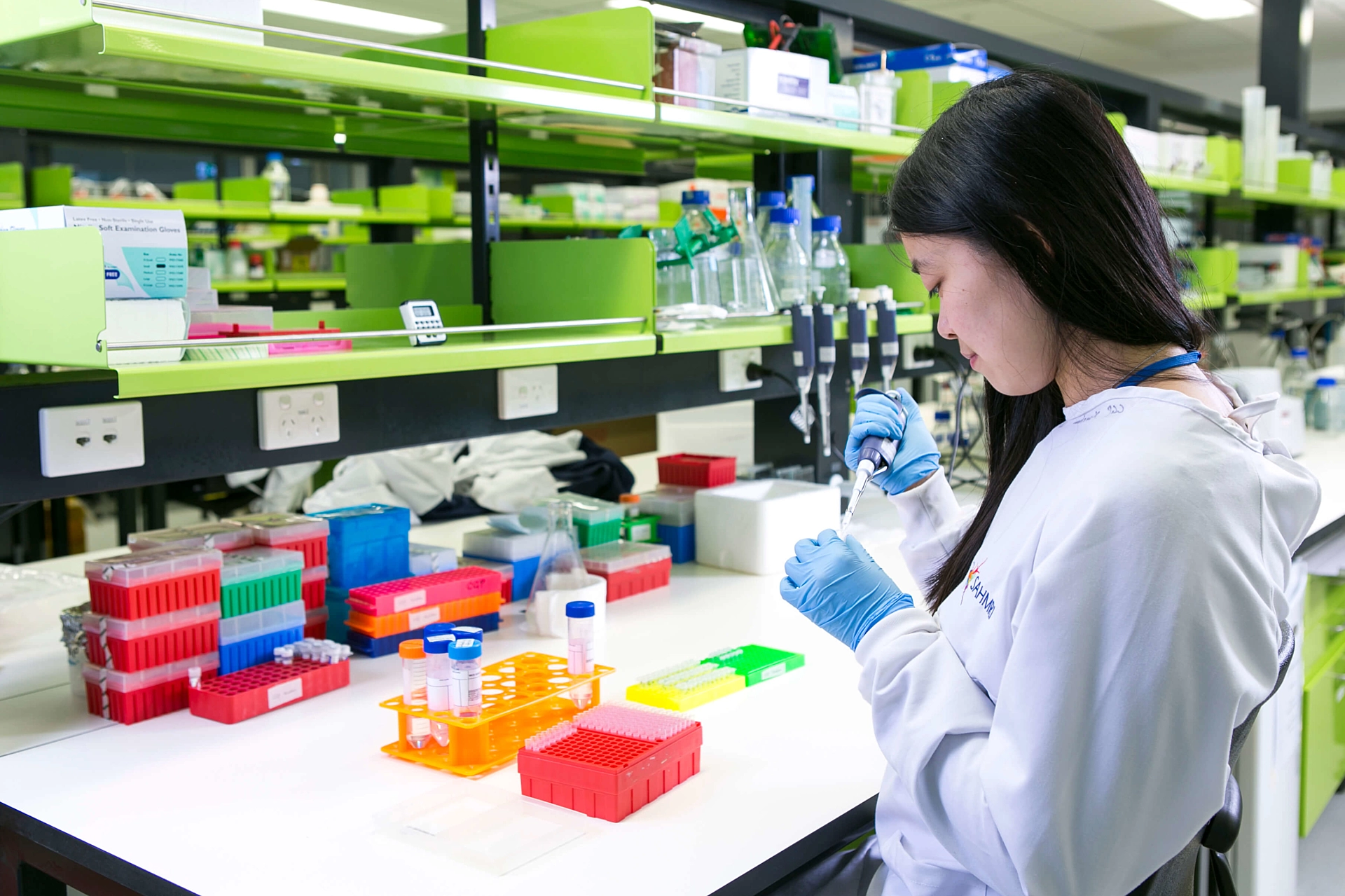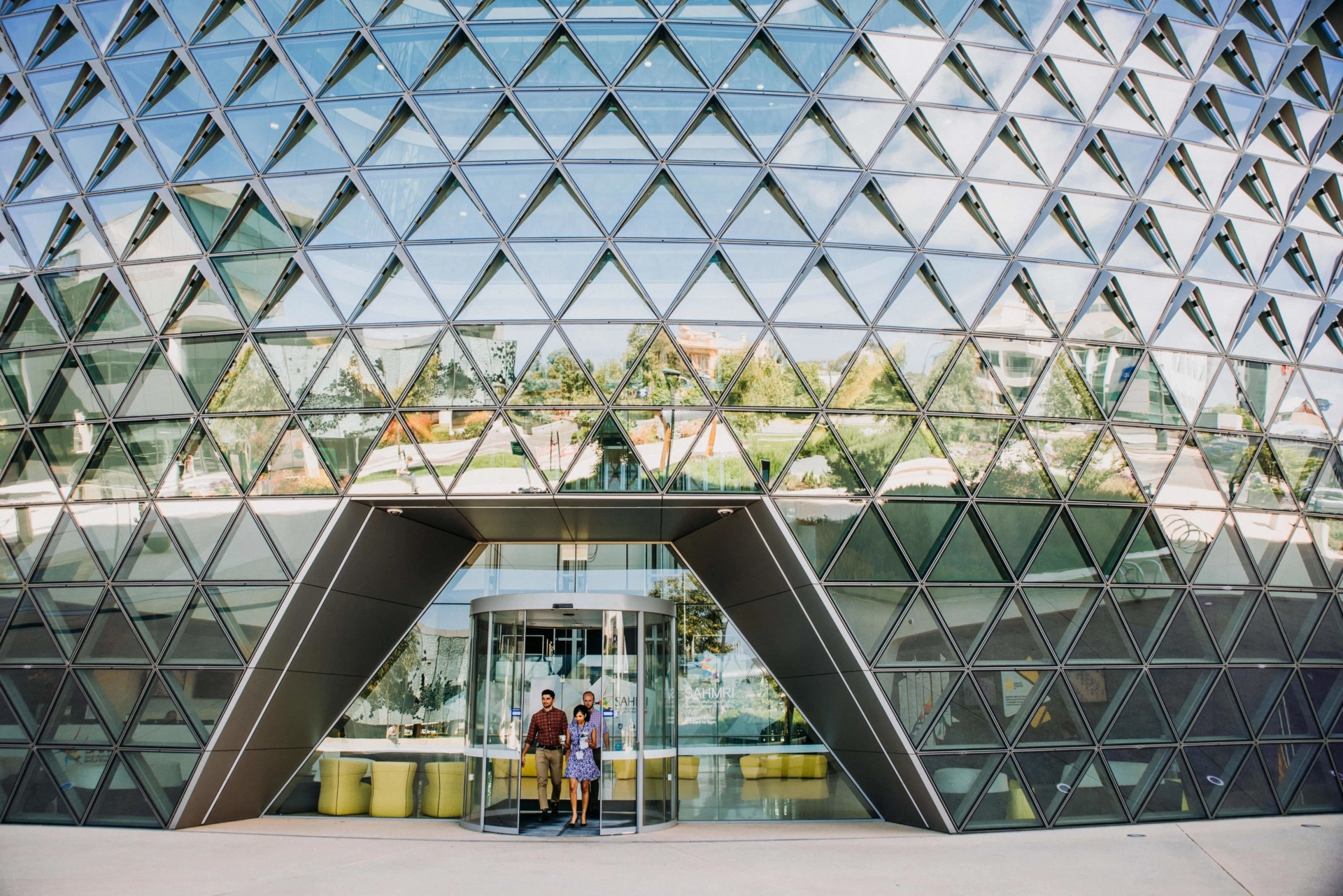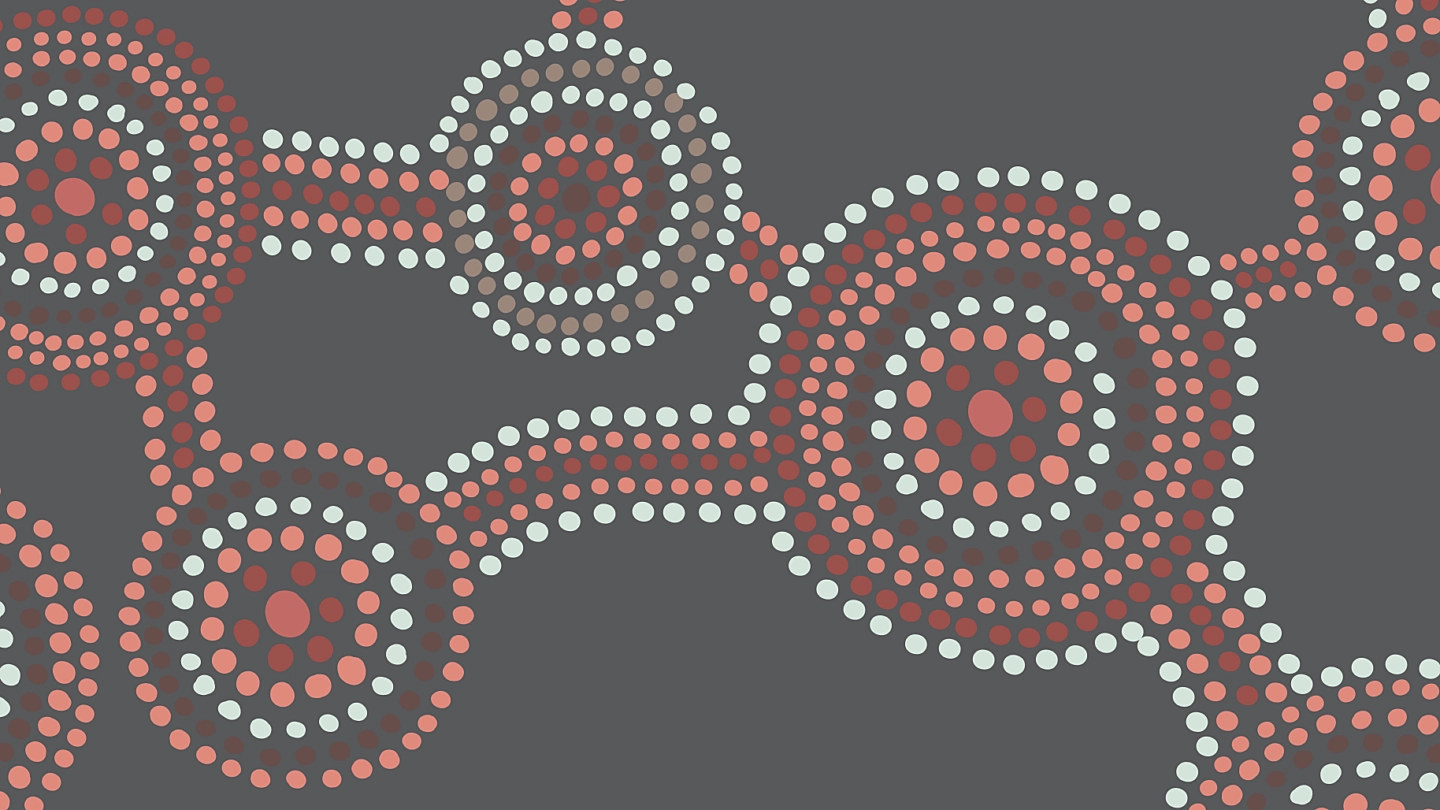SAHMRI offers a unique opportunity for Higher Degree Students to undertake their honours or PhD studies in a world-class facility where all staff are working towards the SAHMRI vision of inspired research leading to better health for all.
Located at the heart of Adelaide BioMed City on North Terrace, Adelaide, students undertaking their Honours and PhD projects at SAHMRI will benefit from the institute’s strong partnerships with the nearby university sites as well as the adjacent Royal Adelaide Hospital.
SAHMRI is the home to students from all three of South Australia’s major universities. Students at SAHMRI can carry out research across the institute’s broad range of research themes and pillars. Whether working on laboratory, clinical, population or health services research; close interaction with researchers from diverse fields, coupled with the proximity to the clinical coalface, provides the opportunity to perform research that truly impacts health outcomes our community.
Students working at SAHMRI will be enrolled within university programs but will benefit also from the unique student community SAHMRI has fostered over its relatively short lifespan.





